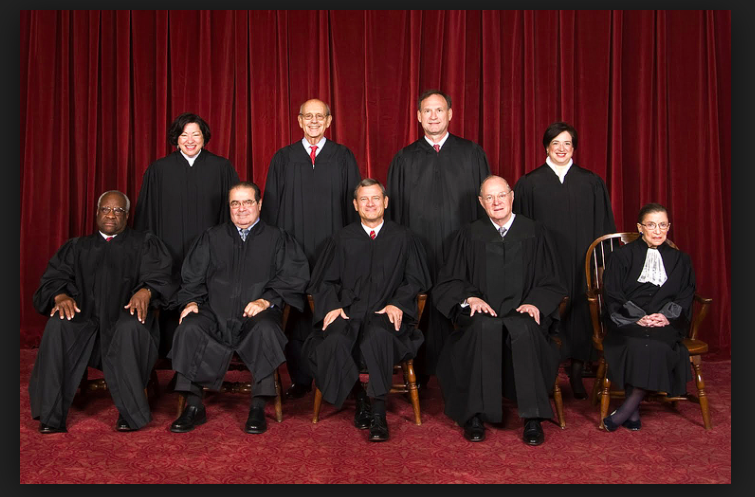SCOTUS Scandal
In the midst of the death of Justice Antonin Scalia, a scandal over the replacement of the Justice rose to the scene. In the past forty years, four Justices have been nominated and confirmed by the Senate within a year from election; yet, the Republicans in the Senate claim they plan to block any nominations that President Obama puts forth.
Senate Majority Leader Mitch McConnell stated just hours after Scalia’s death, “The American people should have a voice in the selection of their next Supreme Court Justice. Therefore, this vacancy should not be filled until we have a new president.” The Senate, which is mostly Republican, will be the deciding factor for the next Justice. In opposition to Mitch McConnell, Senate Minority Leader Harry Reid was behind the President getting the right to appoint a nominee for the next Supreme Court Justice. “The President can and should send the Senate a nominee right away,” he said, “It would be unprecedented in recent history for the Supreme Court to go a year with a vacant seat. Failing to fill this vacancy would be a shameful abdication of one of the Senate’s most essential Constitutional responsibilities.”
Every comment from Democratic Senators and politicians point to the same conclusion; if the president was a Republican, there would be no dispute on this matter. Senator Patrick Leahy of Vermont states, “Obama’s been elected twice, you have to assume if Mitt Romney had been elected he’d be making this nomination.”
Yet President Obama had no haste with throwing shade at the Republican Senators who want to block his nomination. “I am amused when I hear people who claim to be strict interpreters of the Constitution suddenly reading into it a whole series of provisions that are not there,” he said. “I am going to present somebody who indisputably is qualified for the seat and any fair minded person, even somebody who disagreed with my politics would say would serve with honor and integrity on the court.” President Obama is referring to the ‘strict interpretations’ being changed by forcing the nomination to be put on hold for a year, when the law states the President is to appoint judges. Article II, Section 2 of the U.S. Constitution provides, “[The President] shall have power… by and with the advice and consent of the Senate, shall appoint… judges of the Supreme Court.” Once again the president challenges those who have a ‘strict reading’ of the Constitution to provide a reason why his nominee should not receive even a hearing. The President states “It’s pretty hard to find that in the Constitution.”
If the Senate does block the nomination, President Obama’s hands might not be completely tied. If the Democrats win back the majority of the Senate but lose the White House in the November election, there would be a two week period where both branches are in Democratic control. The new Congress begins work January 3rd, while President Obama stays in the Oval Office until January 20th. Those 17 days could be the crucial for President Obama to get his nominee in. This nominee would be sent through a new Democratic Majority and could be passed. “If a Democratic Senate comes in on January third, President Obama could send in his Supreme Court nomination,” explained a former Obama administration lawyer. “Then Democrats could apply the ‘nuclear option’ to Supreme Court nominations, and vote in Obama’s nominee by a simple majority.” But a year long Republican block of nominations could result in President Obama nominating an even more liberal replacement.
President Obama stated “your job doesn’t stop until you are voted out or until your term expires,’’ but the Republican Senate majority doesn’t believe the same. As the Senate Majority plans to block all nominations, a potential risk of change in the majority part could result in a future Justice even further from the Republican preference.

Whitney Moran here. If I was asked to describe myself in less than 5 minutes, to say I would have a challenge would be a stretch. I am a Varsity lacrosse...


















Alex Valentine • Mar 2, 2016 at 12:18 pm
Whitney,
Thank you for bringing this very sensitive topic to the front page of the Jetstream Journal.
I would have liked to have seen a balanced representation – what are the views of Republican Senators and what is the reason for the opposition? Could you have referenced the historical SCOTUS nominations made within a year of alame duck POTUS election? How many were made by a divided Senate/President? How many times was there a Republican sitting lame duck and a Democrat Senate, and what was this majority leader’s comments at the time (ref 2006/2007 – then Senator Obama’s thoughts on the matter.)?
again I appreciate you article.
Ryan Henley • Mar 2, 2016 at 9:55 am
Well written. It will be interesting to see how this all turns out.